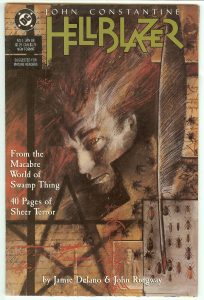
Yesterday the comics world was rocked by a purportedly well sourced rumour that DC would be shutting down its Vertigo imprint after 26 years of publishing some of the medium’s most beloved titles and generally making comics a better, smarter place.
While shocking, this news was still not exactly surprising given all the upheaval that DC has undergone in recent months. So far we’ve seen the Bat-Dingus crisis that saw the whole adult-oriented Black Label imprint almost killed completely; a wholesale reorganization with three VPs laid off; a reduction in the publishing line; and most recently, Tom King’s long brewing plans for Batman suddenly becoming too hot to handle.
And over at Vertigo, it was one problem after another with the latest relaunch. Allegations of sexual misconduct against Eric Esquivel left the last two issues of Border Town unpublished. A book with controversial religious themes, Second Coming, was cancelled entirely (and picked up by Ahoy Comics.) I’m told that the announced book Safe Sex by Tina Horn and Mike Dowling has content that is just not publishable under the current crack down on adult content.
Meanwhile, DC has been pumping energy into its kids links Zoom and Ink, including panels at BookCon and even a first ever booth at Book Expo America.
Despite the penis problems, Black Label seems to have scraped by, as its own BookCon panel revealed. However I’m told all “adult” content is being heavily scrutinized and in many cases PG-ified.
So amidst all that, the idea that Vertigo would be shut down is not as shocking as it once might have been – but it’s still an emotional stunner given the impact Vertigo has had on comics and culture at large.
However, I’m told by various insiders that the story is not as cut and dried as rumors make it out to be. In fact, there’s a lot of confusion over exactly what is happening. What I’m hearing (which is subject to change) is that the Vertigo brand – which was to have seen a big relaunch at San Diego, the latest in a long series of relaunches – will be put on hiatus and projects shifted to Black Label. But I’m also told that could change. I’m also hearing that the layoffs at DC are not over. In fact, there could be some huge ones yet to come.
Hmmmm.
Begin the speculation: Let’s back up a minute to the Bookscan report Brian Hibbs wrote up a few weeks back. It was a very, very long piece so you may have missed this:
Our #8 publisher in the Top 750 is DC Entertainment.
This is, frankly, shocking to me. For the first decade-plus I have been doing these charts, DC’s attention to backlist had naturally rendered them the #1 publisher…. With a bullet! And even when, the last few years, they lost the #1 spot to Scholastic, they were still majorly, significantly always at least #2.
[…]
2018 is pretty ugly in the book stores for DC – they haven’t had this tragic of a performance since 2005. And I’m still trying to wrap my head around it from 20,000 feet.
Now, there’s no doubt that the rebranding from “New 52” to “Rebirth” simply did not work in the mid-term – it does not appear that the “civilian” audience understood why continuity was being “reset” again so quickly. And while the “Rebirth” GN numbers were OK to start, they very very quickly bombed out. Here’s an example: the first “Rebirth” “Harley Quinn” launched at 13k in 2017. In 2018, it sold just 1818 copies. Kind of shockingly, v1 of the “New 52” “Harley” outsold it at 1894 copies. You can see this over and over again down the line: “Rebirth” “Batman” v1 sold 24k in 2017, and just over 5600 copies in 2018. “Nightwing” v1 sold 12k in 2017, down to 3k in 2018. In fact, not a single “Rebirth” branded book passes 10k in 2018, and it completely slaughtered the sales of the “New 52” editions as well.
Just to give this a number, DC’s book sales in book stores declined year over year like so:
| 2017 | 101 | 827,544 | $15,234,525 |
| 2018 | 47 | 360,414 | $7,810,753 |
The number of titles in the second column are titles in the Top 750 (DC published way more than 47 trades in 2018). But from these number you can see why they cut back on their collected editions – sales were tumbling over all.
You can also see why they are spending $500,000 on marketing the Zoom and Ink lines that are aimed at young readers. (Source).
I couldn’t find a figure for the Black Label marketing budget, but they put a lot of marketing oomph behind Sean Gordon Murphy’s Batman White Knight, which was indeed a solid hit in bookstores and comics shops.
At the Diamond Retailer summit a few weeks ago, DC’s vp of Sales, Nancy Spears, assured retailers the “DC remains committed to the direct sales market.” I’m sure that is true: given this sales slump, DC has no reason to abandon 2000 shops that are dedicated to selling their product on a nonreturnable basis.
However, just what will that product be? The industry is shifting inexorably towards comics for younger readers, and DC has seen that handwriting on that particular wall.
I’ll save my Vertigo in memorium for when whatever is happening is official, but for now: Vertigo changed the face of comics, and no matter what happens from here on out it will remain one of the greatest creative blossomings the medium ever saw, led by visionary editors including founder Karen Berger, Tom Peyer, Stuart Moore, Shelly Bond, Axel Alonso, Will Dennis, Mark Doyle and many more. (I don’t mean to slight anyone – there’s actually a book about all this, The Vertigo Encyclopedia, although it came out in 2008.) And the books in its library continue to fuel that all important media, from Swamp Thing to the upcoming movie The Kitchen, starring Elizabeth Moss, Tiffiny Hadish, Melissa McCarthy and Domhnall Gleason, based on the Vertigo mini by Ollie Masters and Ming Doyle.
Over the years, Vertigo was the backlist champion for DC’s book sales. Sandman of course, but also books by Grant Morrison and Alan Moore, Fables, Y the Last Man, American Vampire, and so on. It also became the home for books from various abandoned imprints that remained successful. Transmetropolitan started at the SF Helix line, but moved over to Vertigo. Watchmen and V for Vendetta eventually got the Vertigo label on their spines. The Road to Perdition and A History of Violence, the basis of well-regarded films, were put out under the obscure Paradox line, but reprinted under Vertigo.
But a funny thing happened recently. Watchmen and The Dark Knight got moved over to the Black Label brand, along with a bunch of perennial DCU related titles. Only a very few Vertigo titles seemed appropriate for the DCU themed Black Label, but Black Orchid, by Neil Gaiman and Dave McKean, also got moved over. DC is clearly putting its branding for adults behind this imprint, and maybe that doesn’t leave that much room for Vertigo. It’s not yet clear just what Black Label will pick up from this Vertigo hiatus/shuttering, or whether creator-driven titles can be part of it. Vertigo’s brand has had its ups and downs over the years, but with all the foundational editors long gone, a new brand, created by people still at the company, seems to be getting more attention.
But back to the question posed by this post’s title. From what I’m hearing, plans at DC can change very quickly. Whenever people talk about what’s happening, oversized personalities like WB’s President, Warner Bros. Global Brands and Experiences Pam Lifford, and DC publisher Dan DiDio inevitably get mentioned in the very first sentence. And looming over all, the general corporate restructuring brought on by AT&T’s acquisition of Warners. There are many pieces in motion.
We’ll be reporting more details as they emerge (and as always welcome any news tips right here), but I can tell you one thing: the upheaval is not over at DC.


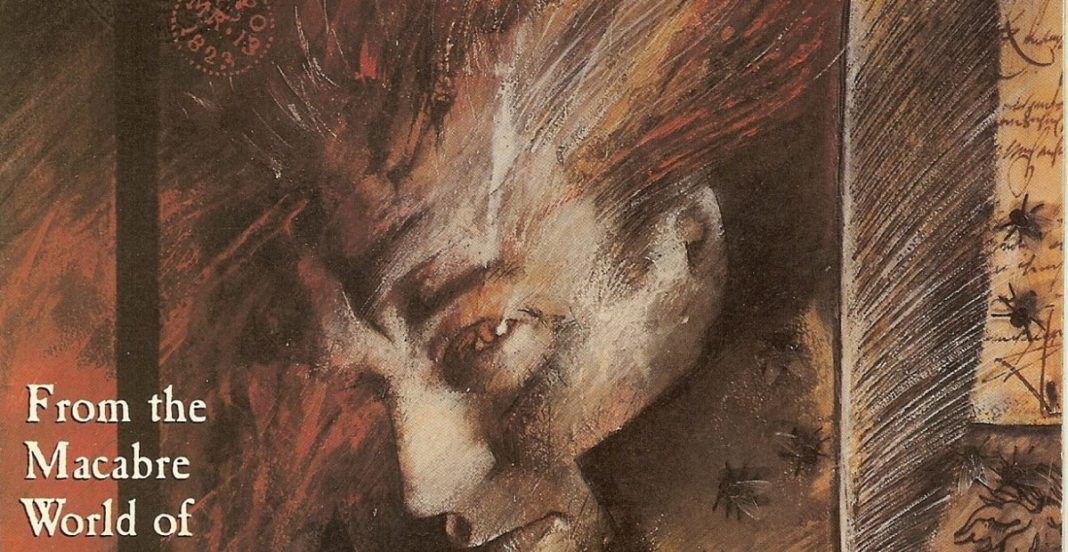
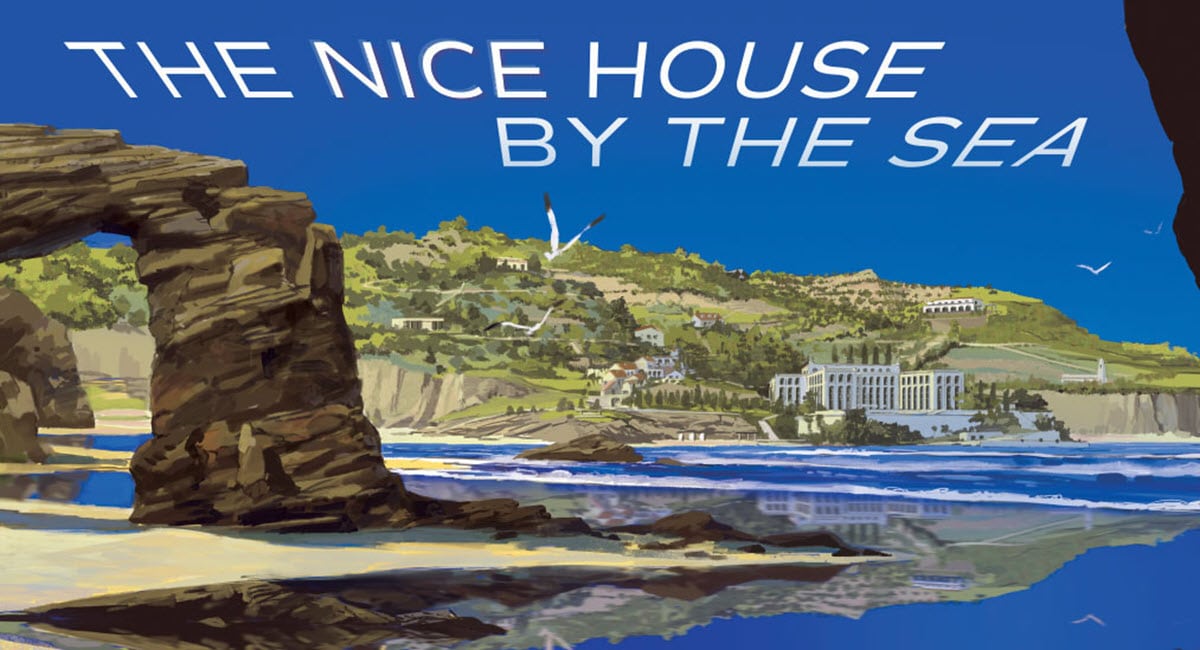
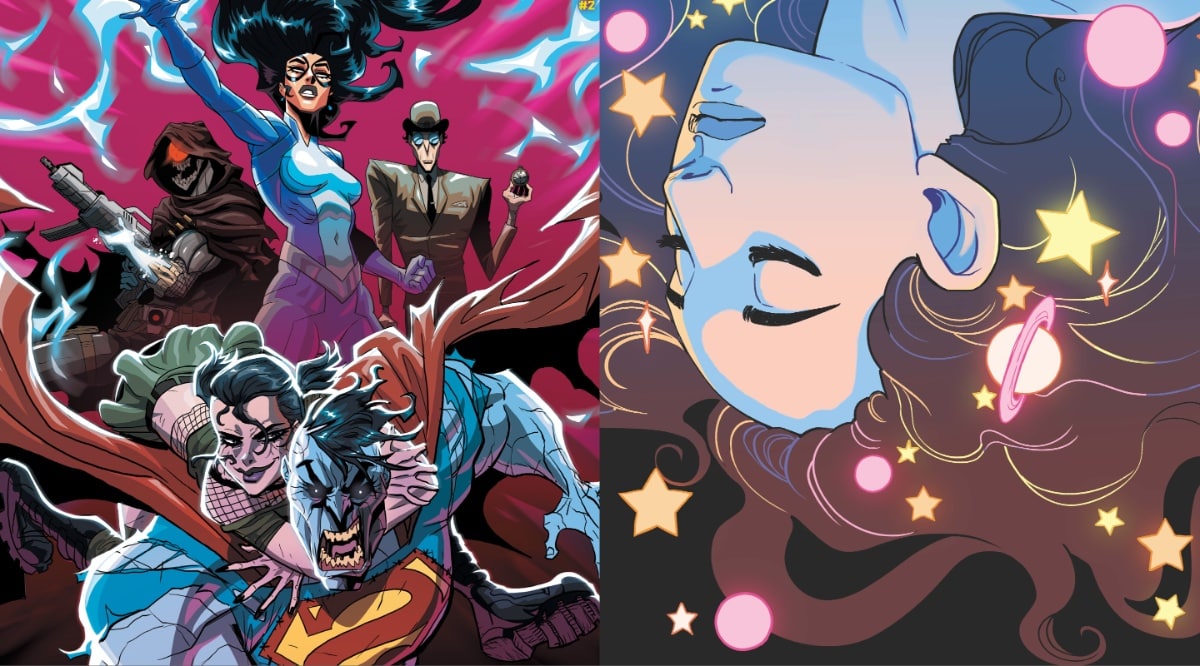
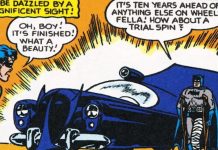



I think that Vertigo is THE ONLY TIME IN COMICS HISTORY that “creating” an imprint has actually EVER genuinely worked. And that’s largely because it took a number of already existing titles, gathered them together like a bundle of sticks, making them all stronger together, rather than trying to manufacture something out of whole cloth from scratch.
Vertigo, as I see it, has two main problems these days:
1) They’re not attracting properly “A” level talent because the contracts were rewritten to help WB “exploit the properties” more. If Garth Ennis and Warren Ellis (or whoever) would rather publish at Avatar and Aftershock (or where ever) than at Vertigo, that’s a significant problem.
2) They keep trying “relaunch” Vertigo by assembling groups of comics that will “focus the market’s attention” — but people are not (nor have EVER!) looking for a “line” of comics. They simply want GOOD comics, and if they HAPPEN to be part of the same line, then that’s great. No one in the history of EVER has said “Tonight, I feel like going to see a Touchstone movie!”, yet in comics we market lines as though that is how people act.
-B
I think that a line famous for quality control absolutely attracts audiences. Maybe people don’t say “hey, I want to go see a Touchstone movie tonight!” but a lot of people absolutely will say “I’ll check out that new Pixar film” or (amongst slightly more hardcore cinema junkies) “I’ll check out that new A24 film” simply because those brands’ track records are so strong. When Karen Berger was running the show, she kept the overall quality of Vertigo pretty high. Looking at the checklists of some old Vertigo comics, a solid 75% of the titles in a given month were good to great in my opinion. Today, you can find a lot of books of equal or better quality from Image, but only 20% or so of Image’s output interests me. Highly variable quality plus the fact that comics are expensive these days makes me less inclined to take a chance on an Image series by an unfamiliar creator. I’ll read a book by Grant Morrison no matter where he publishes it, but I don’t know if I would have been as likely to take a chance on series like Scene of The Crime back in the day if they didn’t have the cachet of the Vertigo brand.
“… there’s actually a book about all this, The Vertigo Encyclopedia, although it came out in 2008…”
There’s also an art book by Alisa Kwitney called Vertigo Visions (not to be confused with the occasional comic books published under that same name) that celebrated the imprint’s cool artistry over its first 10 years or so.
it feels like they’ve identified one part of the market that has huge potential to scale and another that has hit a permanent plateau and are adjusting attention and resources accordingly.. Important for businesses to identify that if they want to survive.
interesting problem, Vertigo’s is that it’s owned by a monster conglomerate. Smaller publishers don’t have those constraints. Marvel tried a ‘Vertigo’ which really was rehashed regular Marvel with a little more mature spin. Former Vertigo guy Axel Alonzo is somewhere, which would be great for a unifying presence. Mature level or reality level super-heroes would be interesting like addressing Superman from a reality alien or religious point of view. I would argue the smaller publishers ended up killing Vertigo because of the freedom they have. Second Coming sounded great at least conceptually. Vertigo needs to go in a more ‘high concept’ direction. Maybe super-heroes in a more realistic setting. Doctor Strange was a idiopathic, egotistical, narcissist. Those qualities don’t just disappear because he became Doctor Strange. One of the most memorable Superman stories growing up was him dealing with a neighbor whose husband was beating her, you really don’t see those emotional types of stories much anymore.
What’s happening is that AT&T is now in charge and just like the rest of Time Warner they are putting the hammer down.
Things are going to get much worse over the next year or two.
Brian thus comment right here
“2) They keep trying “relaunch” Vertigo by assembling groups of comics that will “focus the market’s attention” — but people are not (nor have EVER!) looking for a “line” of comics. They simply want GOOD comics, and if they HAPPEN to be part of the same line, then that’s great. No one in the history of EVER has said “Tonight, I feel like going to see a Touchstone movie!”, yet in comics we market lines as though that is how people act.”
articulates why I groan and check out whenever I hear about someone publishing a line of super books and a new universe. Having themed imprints or genre specialty is fine, other pubs do that, but they don’t try to sell me on the brand it’s put out under.
The DC trades selling badly is also another backlash from the relentless bi-weekly schedules for floppies. If you have 2 floppies per month, you’ll have a TP worth of material in 3 months, which means you’ll release about 4 trades per year! In ‘regular-book-country’, authors who are considered bread-writers publish one book per year! Gives a whole new meaning to the idea of ‘over-saturation’. If it’s not top-material, no one will keep up with such a schedule for multiple series.
DC kept hiring junk writers to pen terrible books. That’s why it’s shutting down. Vertigo was good like 20 years ago (even though I hated Y the Last Man). Now it’s full of people writing with no life experience. The characters dont resonate with anyone.
1) DC exhibited at BEA back in the 1990s, and had a giant booth in the middle of the Graphic Novel pavilion in 2002. They disappeared when they moved distribution over to Random House, but marketing has improved as DC aims at non-comics readers. Of course, a few years ago, they had Wonder Woman Day during Book Con, but failed to do ANY marketing at Book Con, even though the show was full of young women who love books, and the new YA novels were being touted.
2) DC’s New 52 rebranding, though replicating the Crisis relaunch, failed to create new titles which sold well in backlist. Superhero comics are soap operas, and have a similar shelf life. The “Earth One” imprint, designed for new readers, sold well to libraries and bookstores (NYTBS), but DC failed to release them on a regular schedule, even though the books could be produced in less than a year.
3) DC has a long history of failed imprints, as mentioned above. Good intentions, but bad implementation. (I’m still wondering why Jeff Smith’s Shazam book wasn’t reprinted under the Zoom imprint.)
I wish I was around the comics reading world at the time of the Vertigo heyday. I wish I was well read on many of the Vertigo classics. But reality is I’m 20 to 30 years too late, and I’ve only caught on to Swamp Thing from that era. I’ve just started to read Sandman. The punk vibe and appreciation for long form stories that drove Vertigo seem to have faded, with the brand suffering as a consequence. Every indy publisher is selling comics that could have been published at the modern incarnation of Vertigo. It’s just not special anymore, and the comics readers just aren’t into punk anymore. Black Label at least seems to have caught some of the old Vertigo approach – mature stories on the fringe of the main DC Universe, not just generic sci-fi horror comics.
“DC kept hiring junk writers to pen terrible books. That’s why it’s shutting down. Vertigo was good like 20 years ago (even though I hated Y the Last Man). Now it’s full of people writing with no life experience. The characters dont resonate with anyone.”
The comics industry kept hiring creators writers to make terrible work which no one buys. That’s why small inprints are shutting down. Trangressive, intellectual, and quirky comics were good like 20 years ago (even though I hated Art Spiegelman’s work). Now, the entire industry is full of people making trangressive, intellectual, and quirky comics and they have no life experience or the skills to do what they are trying to. The art sucks. The characters don’t resonate with anyone and no stories are told and no one buys them and then people in the “comics community” have the nerve to wonder why creators are being laid off and comic lines are being shuttered.
They aren’t making any money. Not even, librarians order one gn because it got recommended on NPR one time kind of money.
No, Chris Ware is not a household name.
. “However I’m told all “adult” content is being heavily scrutinized and in many cases PG-ified.”
Because there is no market for comics with “adult” content.
There is a market, however institutional, and bureaucratic for PG content at schools and libraries.
https://www.publishersweekly.com/pw/by-topic/childrens/childrens-industry-news/article/70304-middle-grade-books-take-on-mature-topics.html
I don’t know…. but it seems like….it is easier to market “adult” content to ‘children’ than it is to adults. There is no controversy or much of an interest in a mature comic marketed to adults.
Controversy=attention=SALES.
“Doctor Strange was a idiopathic, egotistical, narcissist. Those qualities don’t just disappear because he became Doctor Strange.”
That’s called character development.
Also, Dr. Strange was suppose to be a superhero.
It’s kind of hard to be that if he has all these flaws.
Diseased people with huge egos are not aspirational or heroic characters. People who want those things are free to make their own instead of deconstructing characters to make them just as ugly as they are .
“you really don’t see those emotional types of stories much anymore.”
It’s hard to make emotional stories if neither the creators or the adult and sophisticated readers of comic books these days are not emotionally invested in the characters or stories.
“Now it’s full of people writing with no life experience.”
I think you might be surprised how young the original Vertigo creators were when they did their most outstanding work. Gaiman was under thirty when he started Sandman. Moore was under thirty when he started Marvelman and Swamp Thing and barely over thirty when he wrote Watchmen. Grant Morrison was under thirty when he started Animal Man and Doom Patrol. Warren Ellis was under thirty when he started Transmetropolitan. Garth Ennis was only twenty-five when he started Preacher! Brian K. Vaughn was under thirty when he started Y: The Last Man.
Preacher. That is all.
i am told that many of the issues at DC/Vertigo are caused by a family of gibbons that have escaped from the zoo and made the DC offices their new home. While no one wants to badmouth gibbons, they are not good in an office environment and frequently shit in the various office equipment. This is bad for both productivity and morale. I vote that we send in animal control to get the gibbons out safely.
“There is a market, however institutional, and bureaucratic for PG content at schools and libraries.
https://www.publishersweekly.com/pw/by-topic/childrens/childrens-industry-news/article/70304-middle-grade-books-take-on-mature-topics.html”
Thanks for that link! The article is a great read. The topics mentioned in the article — suicide, gender identity, war, genital mutilation — that are in today’s YA books would have very much been at home during Vertigo’s heyday.
And they really are mature material, unlike the Black Label stuff that just pretends to be.
I think there’s a chicken/egg question when it comes to what happened to Vertigo. But there’s a lot of factors:
The gutting of the contracts, trying to force creators to tie their media rights to the WB conglomerate, at a time when Image and other publishers wouldn’t require that.
The effect of New 52 on the backlist and trades, especially as Vertigo comic sales ran dangerously low. It’s okay to run a line of comics where users wait for the trade if you have a strong sales team pushing trade sales. When trade sales faltered, what happens then?
The Black Label and Young Animal imprints. The existence of those groups took away the possibility of DC characters in the Vertigo line.
The cancellation of Hellblazer and trying to integrate Constantine into the DC Universe. To me, that ended the spirit of the Vertigo line. Look at the quality of the writers on that title! Delano. Ennis. Jenkins. Ellis. Azzarello. Carey. Diggle. Milligan. With fill-ins by Morrison and Gaiman!
There’s no reason for Vertigo to exist anymore. But my heart still aches.
Comments are closed.